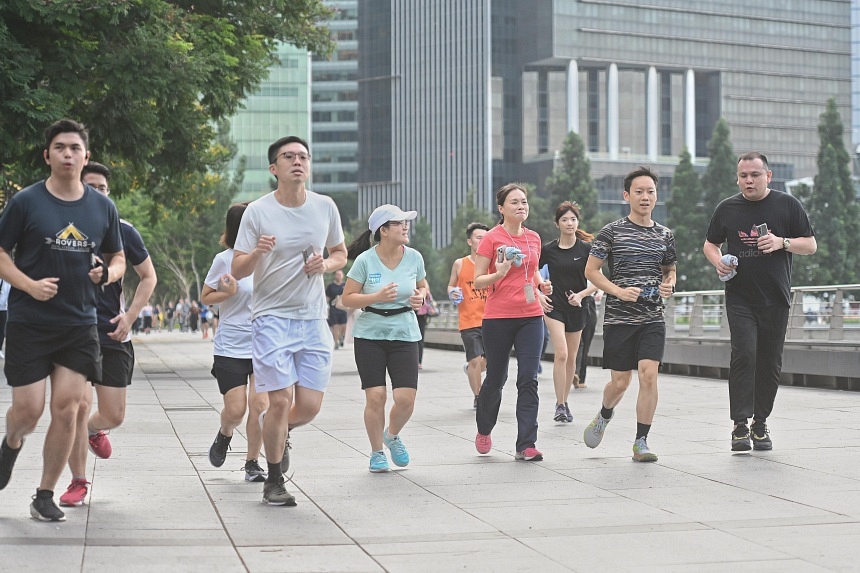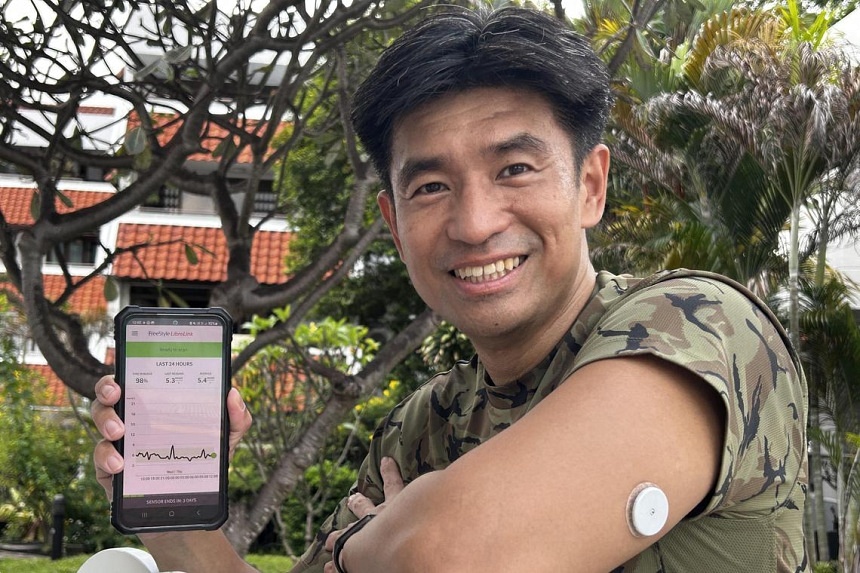from straitstimes.com:
Singapore watching four diseases as part of pandemic preparedness: Ong Ye Kung
Minister for Health Ong Ye Kung said the authorities are keeping a close watch during the year-end travel season.PHOTO: LIANHE ZAOBAO
Zhaki Abdullah
UPDATED DEC 23, 2024, 10:06 AM
SINGAPORE – The health authorities in Singapore are keeping watch on four diseases, including Covid-19, H5N1 and mpox, as part of efforts to prepare the Republic for another pandemic.
In posts on his Facebook and Instagram accounts on Dec 21, Health Minister Ong Ye Kung said the health authorities are also keeping a close watch on
developments in the Democratic Republic of Congo (DRC), where a mysterious disease has killed 6 per cent of patients, mostly children.
According to the Africa Centres for Disease Control and Prevention (CDC), 592 have been infected and at least 37 have died as a result of the disease.
“That is why Singapore decided to donate surveillance equipment to the African CDC, and is prepared to provide relevant training to healthcare personnel in Africa,” Mr Ong said.
He said Singapore’s antennae are especially sensitive during the year-end travel season, adding that H5N1 – otherwise known as avian influenza or bird flu – is posing the highest pandemic risk.
The United States had earlier this week reported its first severe case of the disease. A 65-year-old who had been in contact with an infected flock of birds in the state of Louisiana
is in critical condition in hospital.
Of the 61 cases reported in the US so far, Mr Ong noted, most had direct contact with animals such as birds or cattle. It suggests the possibility of animal-to-human transmissions.
“What we are keenly watching out for is evidence of human-to-human transmissions. If that happens, it may mean that H5N1 has mutated and poses a pandemic risk,” he said.
Symptoms of H5N1 include high fever, sore throat and difficulty breathing.
As for the disease in the Panzi district of the DRC, Singapore’s Ministry of Health (MOH) said earlier in December that there is a low risk of it spreading to Singapore.
The health authorities in the DRC have announced that the cases could be due to severe malaria which became deadly when coupled with malnutrition among children.
“As malaria is common in that area, further tests are needed to exclude the possibility of other causative diseases,” said Mr Ong.
The third disease which the health authorities are watching is mpox clade I, which the minister said “continues to wreak havoc in certain parts of Africa”, with sporadic imported cases in other countries such as Thailand and Britain.
Earlier this week, reports emerged of a cluster of four cases in Germany after a traveller who had visited Africa infected his family members.
“It will be a matter of time when Singapore experiences our first imported case, and even first local infection,” said Mr Ong.
“Fortunately, the experience in most countries, including African countries like Rwanda, is that most patients recover smoothly and it is not a very deadly disease,” he added.
MOH had announced in September that vaccinations against mpox would be
provided free to healthcare workers at highest risk of exposure to the disease, as well as close contacts of confirmed cases.
Mr Ong also gave an update on Singapore’s Covid-19 situation, with the current dominant strain being MV.1.
This descendant of the Omicron variant accounts for about 30 per cent of local infections here, he noted.
“What is significant is that there has been no year-end wave as we expected,” he said, adding that wastewater testing and random tests did not point to an increase in cases.
“A possible reason is that over time, as more people get infected at different times, the infection waves become attenuated,” Mr Ong said.
“Notwithstanding, some countries continue to experience waves, and MOH continues to watch out for emergence of Covid-19 infection waves because each time it happens, it increases patient load at our hospitals significantly.”
Updated versions of Covid-19 vaccines from Pfizer and Moderna were introduced here in October.
Telehealth lapses
Separately, Mr Ong reiterated that despite lapses by some telehealth providers, there is
no need for further regulations for the sector.
“We just need to make sure we are vigilant and take action when people breach these existing frameworks, so there is no need for new rules,” he told reporters on Dec 21.
MOH announced on Dec 20 that it had
revoked the licence for MaNaDr Clinic, whose services included teleconsultations via a mobile app.
This was after the ministry assessed that the organisation had an “entrenched culture of disregard for the applicable ethical and clinical standards”.
MOH found that a large number of cases seen by MaNaDr Clinic
involved very short teleconsultations. The shortest teleconsultation lasted just one second.
Mr Ong was speaking to reporters on the sidelines of a year-end celebration for seniors in Sembawang, an event jointly organised by logistics company UPS, charity Blossom Seeds and the People’s Association.
Attended by more than 200 people, the event saw UPS present a donation of $11,000, raised by its employees, to Blossom Seeds to further its programmes for seniors.
















































